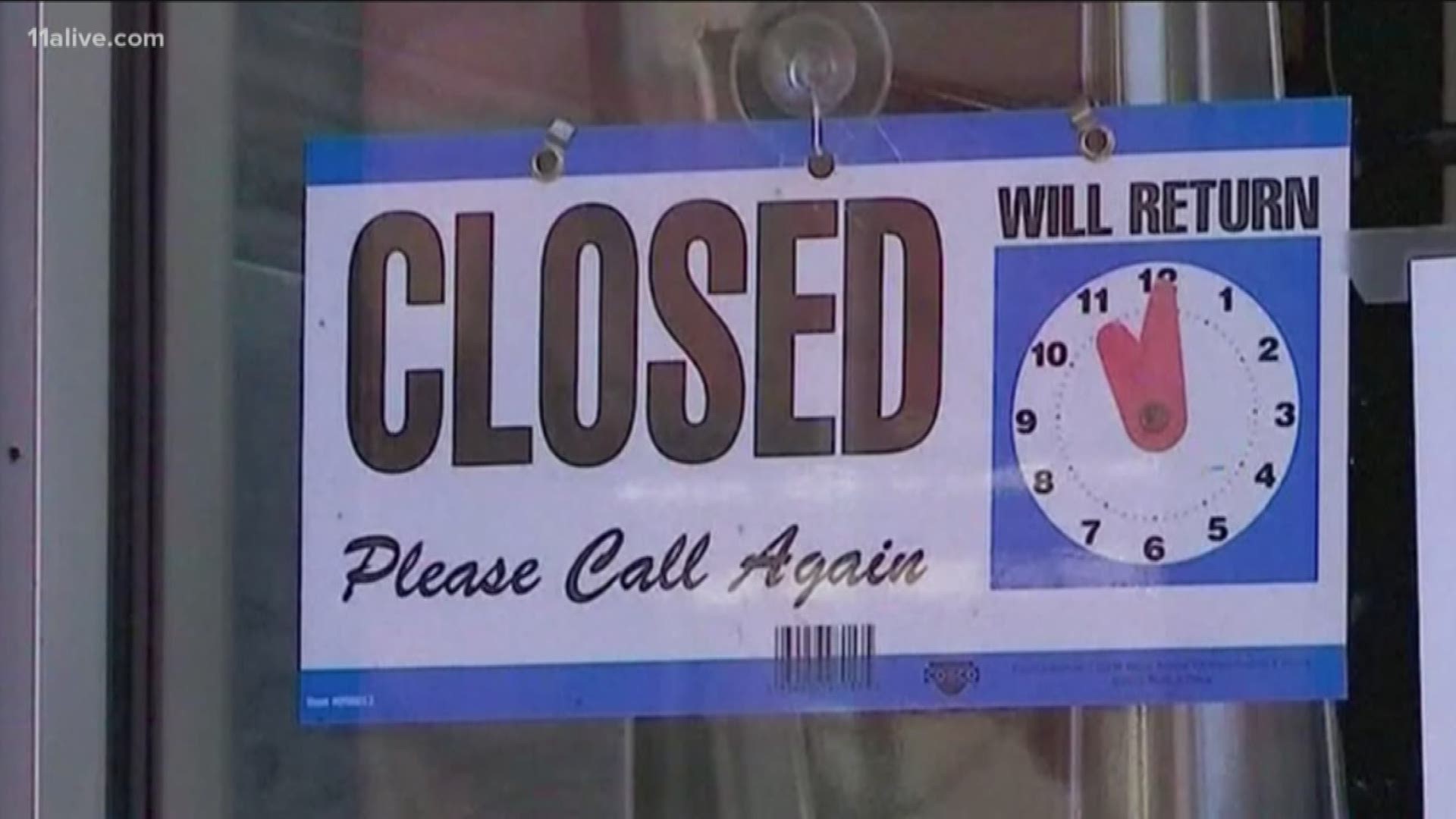ATLANTA — An executive order signed by Governor Brian Kemp in the wake of coronavirus's spread in Georgia will mean statewide enforcement of significant restrictions across all of the state's counties.
The order appears to set blanket requirements for many businesses that aren't deemed critical and another for businesses that will have to close altogether. While broad, the groups that will be forced to completely cease in-person operations and close to the public during the order include:
- Body art studios
- Estheticians
- Hair designers
- Massage therapists
- Beauty shops and salons
- Barber shops
- Bars and nightclubs
- Gyms
- Fitness centers
- Bowling alleys
- Theaters
- Live performance venues
- Operators of amusement rides
- Schools for hair design, barbering, esthetics and nail care
The following will be required to cease dine-in services in favor of takeout, curbside pick-up and delivery.
- Restaurants
- Social clubs
The order actually goes into more detail about what types of industry won't be forced to close or heavily limit business. In this case, the term "critical infrastructure" is used referring back to guidelines provided by the U.S. Department of Homeland Security.
A subset of Homeland Security, the Cybersecurity and Infrustructure Security Agency (CISA), has a detailed list on its website, which includes the following categories:
- Chemical
- Commercial facilities
- Communications
- Critical manufacturing
- Dams
- Defense industrial base
- Emergency services
- Energy
- Financial services
- Food and agriculture
- Government facilities
- Healthcare and public health
- Information technology
- Nuclear reactors, materials and waste
- Transportation systems
- Water and wastewater systems
For a highly detailed list of roles considered essential within these fields, please see the Department of Homeland guidance below the governor is using to outline his order:
Even those under these categories, however, would have to work under extensive guidelines to operate, including doing the following:
- Screening and evaluating workers who exhibit signs of illness
- Requiring workers who exhibit signs of illness to not report to work and/or seek medical attention.
- Enhancing sanitation of the workplace
- Requiring hand washing or sanitization by workers
- Providing personal protective equipment as available and appropriate
- Prohibiting gatherings of workers during working hours
- Permitting workers to take breaks and lunch outside in an office or a personal workspace or other areas that allow social distancing.
- Implementing teleworking for all possible workers
- Implementing staggered shifts for all possible workers
- Holding all meetings and conferences virtually when possible
- Delivering intangible services remotely when possible
- Discouraging workers from using other workers' phones, desks, offices or other work tools and equipment
- Providing disinfectant and sanitation products for workers to clean their workspace, equipment, and tools
- Prohibiting handshaking or other unnecessary person-to-person contacts
- Placing notices that encourage hand hygiene at the entrance to the workplace and in other work areas
- Suspending the use of Personal Identification Number (PIN) devices, electronic signature capture or other credit card receipt signature requirements to the extent such a suspension is permitted by agreements with credit card companies and credit agencies.
Non-essential business would be required to follow all of these and more including:
- Enforcing social distancing or non-cohabitating persons while present on their property.
- Providing alternative points of sale outside of buildings (for retailers and service providers).
- Increasing physical space between workers and customers
- Increasing physical space between workers' worksites to at least six feet.
For all others who aren't sure what category their business falls under, the executive order authorizes the Georgia Department of Economic Development to issue guidance to any businesses, corporation, organization or industry trade group.
MORE HEADLINES

